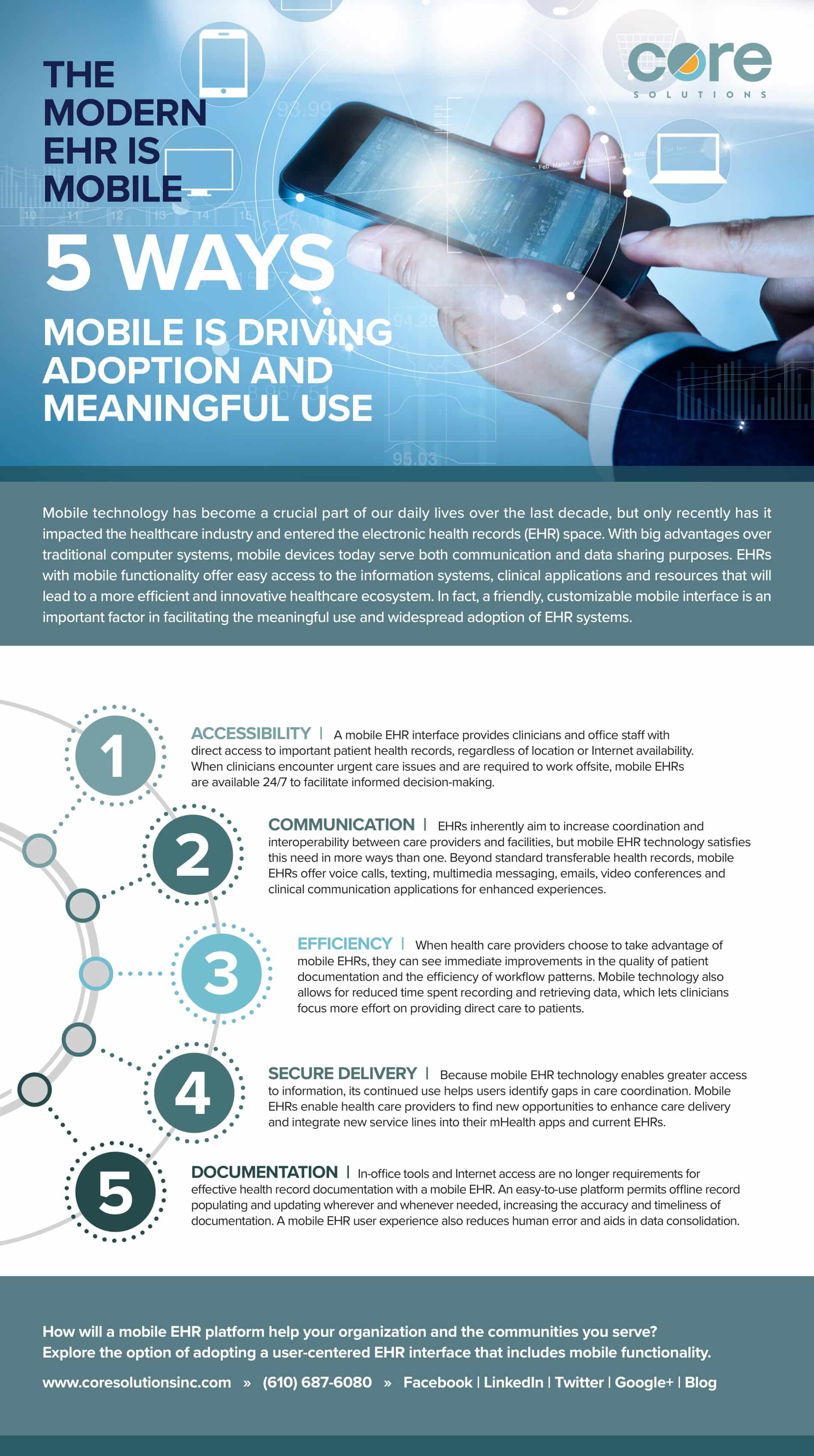Aug 21
2018
The Modern EHR Is Mobile
With the increasingly “on the go” nature of technology and communication, information is accessible from the palm of a user’s hand in the form of mobile devices. Subsequently, the success of modern EHR software lies in the moment accessibility on mobile devices like smartphones and tablets.
The addition of mobile functionality for EHR systems is driving the adoption of electronic health record systems and software in the industry and contributing to meaningful use for patients and physicians alike. Patients benefit from doctors and staff who can make informed decisions by easily accessing their medical records from an easy-to-use mobile interface. Mobile EHRs allow practice staff and physicians to access valuable and crucial patient records, while increasing communication between healthcare facilities in a more efficient, secure manner.
This is incredibly useful in critical care or emergency situations; allowing physicians and other care staff to quickly, securely and accurately view patient information on the fly is a major advantage when emergency surgery or care has to be administered. With the continued scourge of the opioid epidemic requiring investments in patient and physician safety and with continued staffing shortages in the industry leading to further implementation of AI and technology based solutions, mobile EHR will be a critical tool in a healthcare staff’s arsenal, allowing the relaying and accessing of accurate information in a constantly evolving environment.
In addition, the internet, office tools and desktop computers are no longer necessary for effective documentation; mobile EHR allows offline record populating whenever and wherever it’s necessary, increasing the accuracy and timeliness of documentation. By allowing physicians and staff to accurately and conveniently exchange documentation and patient records through a secure, mobile platform, informed decisions can be made 24/7. This drives meaningful use by improving quality, safety, efficiency and care coordination for public health.
By utilizing EHR on mobile platforms, staff and physicians can increase their efficacy and accuracy when updating documentation or accessing patient files. By creating a friendly, innovative platform to access crucial information, EHR software that features mobile functionality is a necessity in modern EHR applications. It will continue to drive meaningful use and accessibility in the healthcare industry going forward as evidenced by the infographic featured below.
